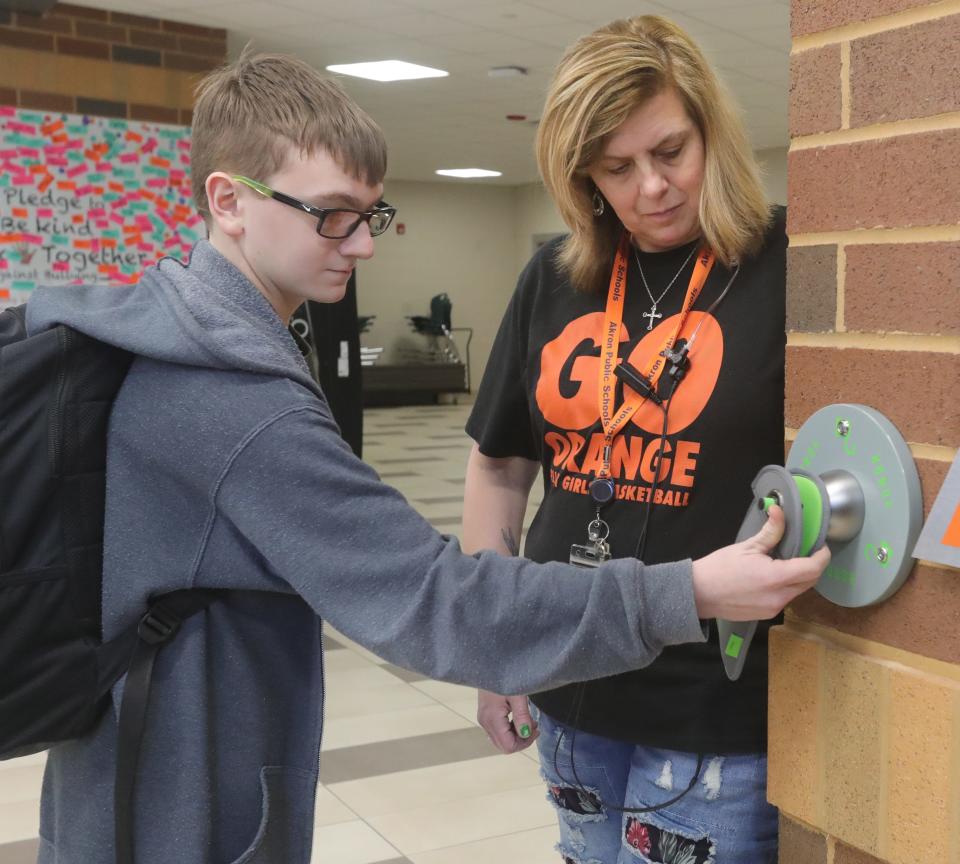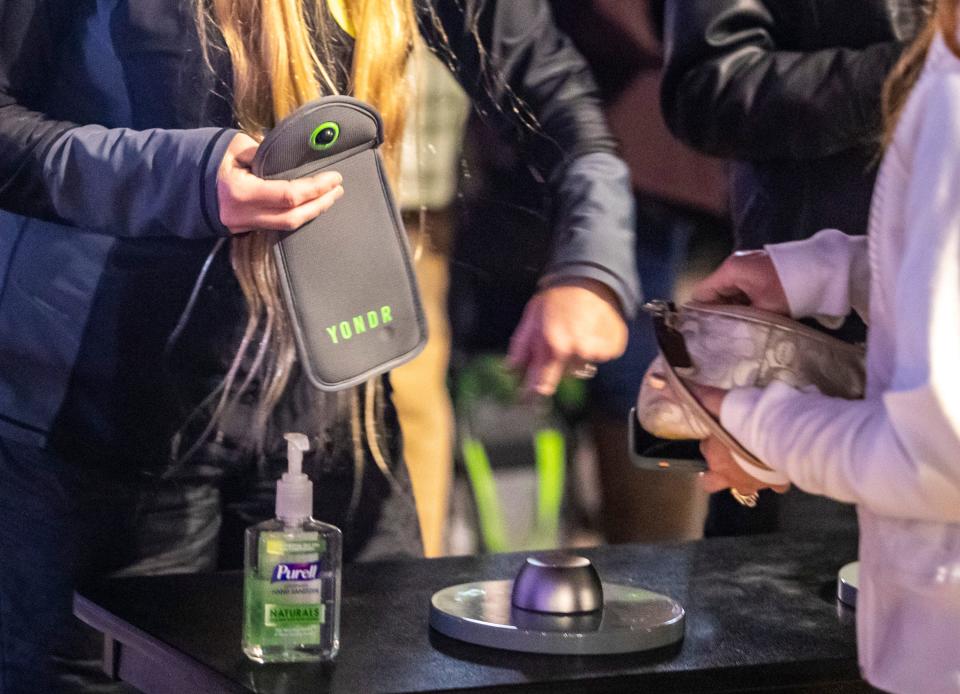MPS to enforce use of Yondr pouches to lock away cell phones starting this school year
Going into the new school year, one major change across Montgomery Public Schools will be the use of Yondr pouches, magnetic containers that will keep students in grades 6-12 from using their phones during the school day.
Every morning, students will lock their phones into their individual pouches that will remain in their possession. When the last school bell rings, students can tap their pouches on an “unlocking base” to regain access to their cell phones.
The hope is that a phone-free environment will lead to fewer in-class distractions, higher learning retention and reduced discipline referrals. According to Yondr’s own research, 83% of schools where its pouches are used see an improvement in student engagement in the classroom, and 74% see an improvement in student behavior.
MPS board members approved the contract with Yondr last month, and during this week’s July meeting, they finalized a new district electronic policy to match.

“Because we are excited about bringing on the Yondr pouches and the implementation of that in our secondary schools, we needed to update our policies slightly,” head of MPS Student Social Services Catherliene Williamson said. “We've updated that so it'll include smartwatches, it’ll include earbuds and it'll include some of the things that weren't quite around when we originally developed the electronic device policy.”
None of those devices may be used during the school day unless expressly permitted by a teacher or administrator, and MPS maintains that it is not responsible for any theft, loss or damage of these personal devices. Teachers and administrators will have the right to access and search a student’s electronic device under very specific circumstances where that may be required.
Before the board approved the new policy, District 5 representative Pamela Cloud pointed out the potential need for exceptions to the use of the Yondr pouches.
“My brother is severely diabetic. He has a device on his arm, and he has an insulin pump. He has to use his phone to gauge his blood sugar,” Cloud said. “That is a very serious situation.”
Cloud worried about what measures would be in place for children who have similar devices or medical conditions that would require them to use their phones during the day.

In response, Williamson said those kinds of situations have been well-thought-out and addressed in the procedures around the pouches. Yondr, which already partners with thousands of schools across 16 countries, is working directly with MPS to craft those procedures.
“Teachers will have a portable magnetic device that will unlock the pouch, so for a child that has already been identified in their class that needs to access their phone, they'll be able to do so without any delay,” Williamson said.
The board members acknowledged that they won’t be able to address every potential problem in the district’s policy, and there will be scenarios that come up with pouches where teachers and administrators will have to use their best judgment.
Nonetheless, the board expressed excitement for the positives they expect to see from using Yondr.
Hadley Hitson covers children's health, education and welfare for the Montgomery Advertiser. She can be reached at hhitson@gannett.com. To support her work, subscribe to the Advertiser.
This article originally appeared on Montgomery Advertiser: MPS to enforce use of Yondr phone pouches starting this school year

